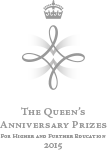Intellectual Property
General
Intellectual Property in its broadest interpretation covers much of our activity in the University, from our research findings, know-how and expertise to the wealth of teaching materials we develop to support learning. An appreciation of what IP is, and the practices and procedures the University has in place to protect and exploit this IP is therefore important for everybody – academics, administrators and support staff alike.
From a legal perspective, the IP framework consists of i) specific registered rights (patents, trade marks and registered designs), and ii) non registered rights (copyright and design right) and common law rights. The terms “hard IP” and “soft IP” have been adopted by many to distinguish between various rights. Hard IP generally relates to patents, trade marks, copyright and designs (along with several specific niche rights such as plant breeder’s rights and database rights). Soft IP generally relates to tacit knowledge and “know how”, and is now recognised as an increasingly important and valuable asset. For further information on IP refer to the UK IPO website
Ownership
In general, the intellectual property of an employee, reasonably linked to their employment, belongs in the first instance to their employer. There are of course exceptions, and the moral rights of authors and performers associated with intellectual property lie outside these economic rights. The University has an IP Policy, which outlines the University’s current approach to IP ownership and the sharing of any revenue generated from the exploitation of IP. The IP Policy .
Ownership in Collaborative and Consortium Research
The situation can and invariably does become more complex when other academic and industrial parties are involved (either doing and/or funding) in the research collaboration or consortium. In an effort to shorten and simplify the negotiation processes associated with collaborative and consortium research agreements, model agreements have been developed. These “Lambert Agreements” are an excellent reference and starting point for these negotiations.
In general, as a fundamental minimum we must always ensure academic freedom to publish (subject to any reasonable delay to allow patenting etc.), and unfettered freedom to pursue academic research in the area.
From a commercial perspective, if a company is financially contributing to a research project, it is reasonable for them to expect some form of first option to access/exploit on commercial terms, the IP arising from the project in their field.
Ownership in other commercial scenarios
In other commercial scenarios, the ownership of IP can be less contentious and is often related to how much the company is paying for your services, who the company is, etc.
In general, if you are performing consultancy role for a company they would expect to own any IP arising from your work with them.
Background and Foreground IP
You may see and hear IP described as either background or foreground. Background IP is the IP you are bringing to the project - both soft and hard which you and potentially your research partners will need to perform the research. Foreground IP refers to new IP created by the research.
For example in a multi-university, multi-company research consortium it would be standard practice for all consortium parties to grant each other a royalty-free licence on the requisite background IP solely for the duration and purpose of the project. Once the research is completed, if say Company A wanted to exploit a new product arising from the research which requires a patent owned by University B, then it would need to come to a commercial licence agreement to do so.
If you are embarking on any collaborative or commercial research with external partners, you should always check the IP clauses in any agreement, and if you are in any doubt whatsoever seek advice from the Business Development Team.






